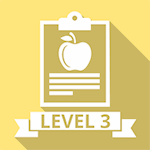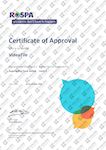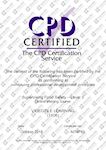Supervising Food Safety
Level 3 CPD & RoSPA Approved
Regiment Training Group
Summary
Overview
This course is designed for managers and supervisors to help them understand their essential day to-day responsibilities. When a candidate passes this course, they will receive a certificate which demonstrates that they can supervise and train staff to handle food safely and hygienically.
Regulation (EC) No. 852/2004 of the European Parliament and of the Council on the hygiene of foodstuffs. This Regulation lays down general rules for food business operators on the hygiene of foodstuffs.
1.This Regulation lays down general rules for food business operators on the hygiene of foodstuffs, taking particular account of the following principles:
(a) primary responsibility for food safety rests with the food business operator;
(b) it is necessary to ensure food safety throughout the food chain, starting with primary production;
(c) it is important, for food that cannot be stored safely at ambient temperatures, particularly frozen food, to maintain the cold chain;
(d) general implementation of procedures based on the HACCP principles, together with the application of good hygiene practice, should reinforce food business operators' responsibility;
(e) guides to good practice are a valuable instrument to aid food business operators at all levels of the food chain with compliance with food hygiene rules and with the application of the HACCP principles;
(f) it is necessary to establish microbiological criteria and temperature control requirements based on a scientific risk assessment;
(g) it is necessary to ensure that imported foods are of at least the same hygiene standard as food produced in the Community, or are of an equivalent standard.
This Regulation shall apply to all stages of production, processing and distribution of food and to exports, and without prejudice to more specific requirements relating to food hygiene.
2.This Regulation shall not apply to:
(a) primary production for private domestic use;
(b) the domestic preparation, handling or storage of food for private domestic consumption;
(c) the direct supply, by the producer, of small quantities of primary products to the final consumer or to local retail establishments directly supplying the final consumer;
(d) collection centres and tanneries which fall within the definition of food business only because they handle raw material for the production of gelatine or collagen.
3. Member States shall establish, under national law, rules governing the activities referred to in paragraph 2(c). Such national rules shall ensure the achievement of the objectives of this Regulation.
It is a comprehensive course which starts with basic definitions of key words, then follows a logical path through other topics including the types of food hazards, personal hygiene, pest control, legislation, enforcement, and the design and cleaning of food premises and equipment. It also discusses how to implement a successful food safety management system.
Food business owners, supervisors and managers have legal duties in UK and EU law to ensure that they and their staff work and prepare food safely and in compliance with good practice.
Online training is flexible, efficient and cost-effective, so candidates can progress through the modules at their own pace, in their own time, making it easy to fit the training around their work and personal life.
- Advanced food hygiene training for supervisors, managers & shift leaders etc.
- Instant PDF Certificate of Completion upon successfully passing the online training course
- CPD & RoSPA Approved
- Engaging, interactive course = enhanced understanding & knowledge retention
- Learn at your own pace with 24/7 access
CPD
Course media
Description
This is a comprehensive course which starts with basic definitions of key words, then follows a logical path through other topics including the types of food hazards, personal hygiene, pest control, legislation, enforcement, and the design and cleaning of food premises and equipment. It also discusses how to implement a successful food safety management system.
There's a wide range of topics because maintaining food safety and food hygiene is vital if you're to reduce the risk of food poisoning. The correct Food Safety Management System, professionally run, protects your customers, your staff, and the reputation of your company.
Module 1- Introduction to Food Safety
You will gain a comprehensive understanding of the importance of food safety in the catering, food business and hospitality sector.
Module 2 - Food Poisoning, Spoilage & Preservation
You will learn how bacteria spreads and leads to contamination, which can, in turn, lead to food poisoning and other food-related diseases.
Module 3 - Microbiology
You will explore the basics of the microbiology of food and microbiological hazards that can occur in the workplace.
Module 4 - Microbiological Hazards & Controls
Taking a deeper look at microbiological hazards and the risk control measures required to prevent them.
Module 5 - Chemical Hazards, Controls & Prevention
You will now develop your knowledge of the different types of chemical hazards, their controls and prevention measures.
Module 6 - Allergen Hazards & Controls
Starting to broaden your understanding of allergies and allergen hazards in food. You will also learn about the many different types of food hazards.
Module 7 - Physical Hazards & Controls
As you progress you will learn about physical hazards that can occur in the food, catering and hospitality industry, taking a look at their control measures.
Module 8 - Personal Hygiene
A very important module were you will be introduced to some fundamental hygiene best practice measures that all food handlers, kitchen staff and serving staff must follow.
Module 9 - Design and Use of Food Premises and Equipment
Now looking at how food premises can be designed to meet the needs of food safety regulations, and how to utilise the workspace to ensure best practice can be easily followed.
Module 10 - Cleaning & Disinfection
Exploring some essential cleaning and disinfection measures for maintaining the kitchen and workplace.
Module 11 - Pests & Pest Management
In module eleven, we will explore the common types of food pests and the pest control management measures we can take to control them.
Module 12 - HACCP & FSMS
Learning the fundamental difference between HACCP and the international FSMS standard.
Module 13 - Implementation of HACCP
Exploring the seven fundamental steps to effective HACCP implementation and why it is so important for identifying microbiological hazards.
Module 14 - 7 Principles of Hazard Control
Time to familiarise with the seven fundamental principles of hazard control that every restaurant manager must be aware of.
Module 15 - Food Safety Legislation & Enforcement
An in-depth look at key food safety legislation and regulations, exploring the legal requirements of staff and management.
Module 16 - Final Test
You will be assessed on the key information that has been learned throughout the course.
Accreditation
This Level 3 Course is CPD & RoSPA Approved
Who is this course for?
This course is aimed at supervisors and first line managers working in the food industry as well as small business owners responsible for running their premises and ensuring their staff are working safely and to the expected standards. It is also a natural progression from the level 2 courses in food safety and HACCP management for those who are taking on more responsibilities.
Requirements
We offer a wide range of health and safety courses that would be appropriate for people working in the food industry.
• Browser: Up to date web browser
• Video: Up to date video drivers
• Memory: 1Gb+ RAM
• Download Speed: Broadband (3Mb+)
Career path
This course is ideal for food, catering and hospitality professionals with supervising and managing duties, such as:
- Kitchen Managers/Supervisors
- Restaurant Managers
- Head Chefs
Questions and answers
Currently there are no Q&As for this course. Be the first to ask a question.
Reviews
Currently there are no reviews for this course. Be the first to leave a review.
Legal information
This course is advertised on reed.co.uk by the Course Provider, whose terms and conditions apply. Purchases are made directly from the Course Provider, and as such, content and materials are supplied by the Course Provider directly. Reed is acting as agent and not reseller in relation to this course. Reed's only responsibility is to facilitate your payment for the course. It is your responsibility to review and agree to the Course Provider's terms and conditions and satisfy yourself as to the suitability of the course you intend to purchase. Reed will not have any responsibility for the content of the course and/or associated materials.




